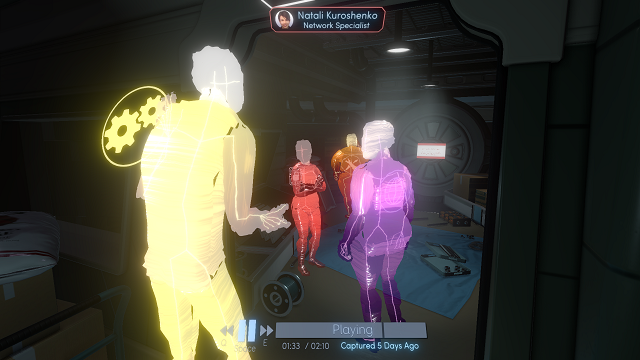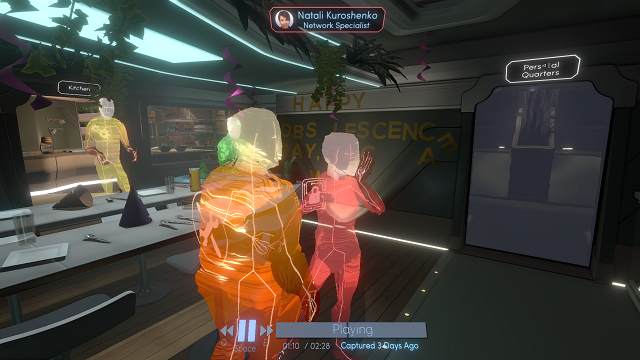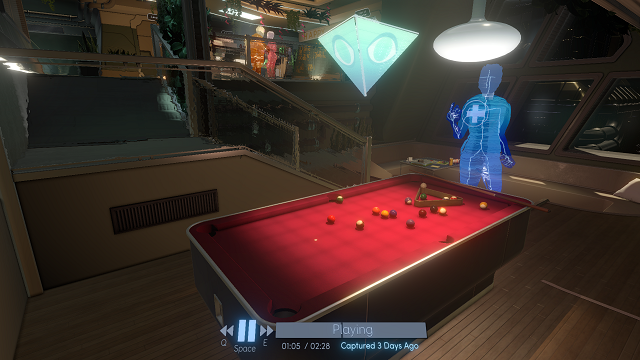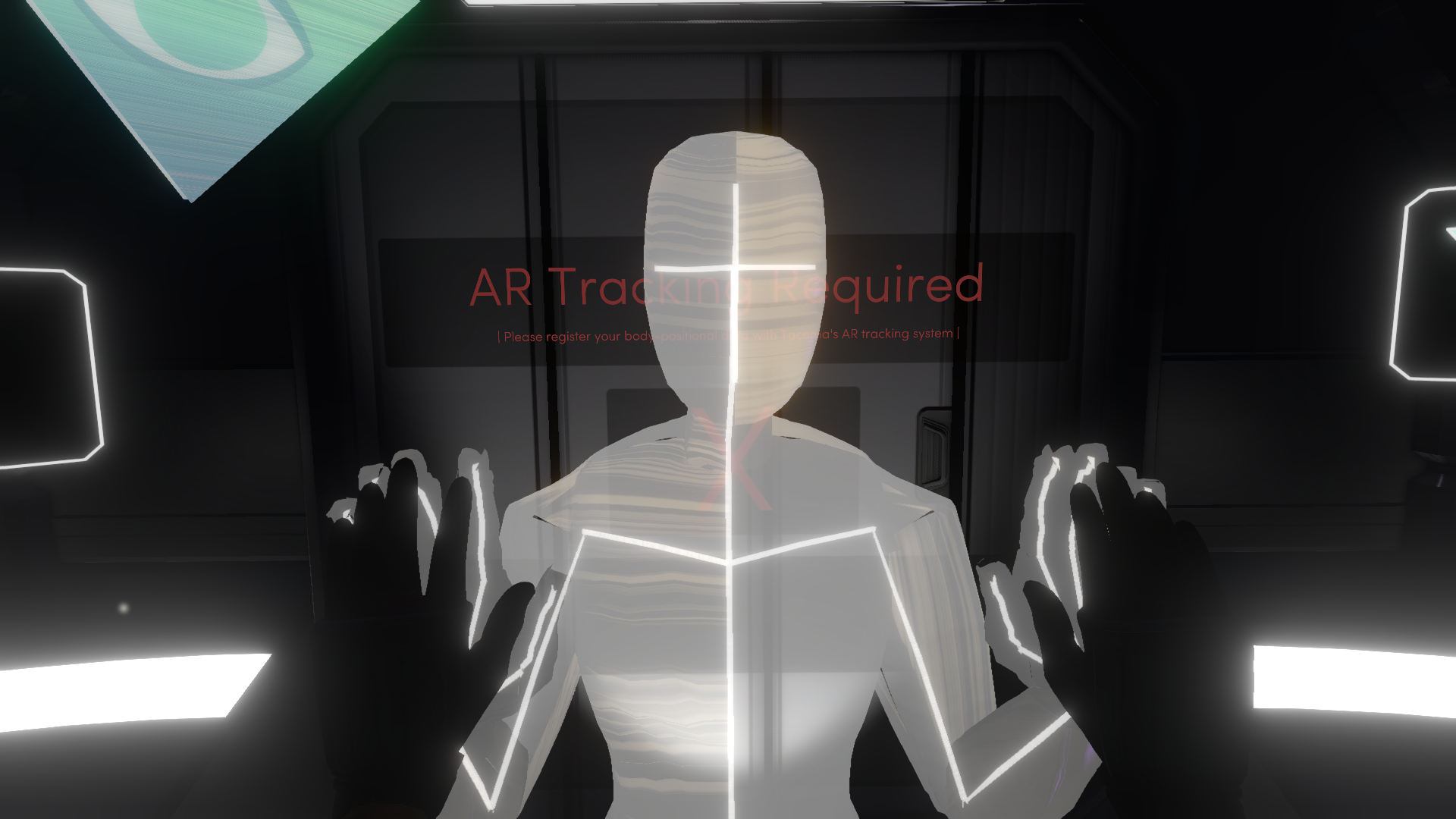Set in the year 2088, Tacoma puts players in the shoes of a contract worker sent aboard the titular high-tech space station to recover the ship’s AI as well as the data stored there. In doing so, players will discover the traces of the ship’s former crew and slowly unravel the details surrounding the workers’ final days aboard their ill-fated ship.
If you are familiar with developer Fullbright’s previous title, 2013’s Gone Home, then you know what you are getting into. Like the admittedly polarizing Gone Home, Tacoma is an interactive narrative experience that sets you loose in a rich environment containing a story about crisis, acceptance, and motivation that slowly unfolds before your eyes.
As you traverse the Tacoma space station — guided from access terminal to access terminal by your employers’ instructional messages — you’ll come across 3D recordings of the station’s former crew members, which can be viewed with the press of the button. These AR holograms will converse with their coworkers, open up personal computers (which can be perused for additional info), or wander off to some other area of the room. These interactions serve to deepen the narrative or yield clues to aid in your search of the space station.

Because these scenes can often include multiple conversations between different crew members spanning across several rooms of the space station — with different narrative clues popping up in different locations at different times — you’ll usually find yourself missing out on key pieces of information if you just stick with one holographic person. Luckily, each scene comes with the handy function to rewind/fast-forward/restart at will, enabling you to watch each narrative thread unfold.
The ability to manipulate the recording at will is perfect for eliminating repetition in a game that would greatly suffer without it. Rather than having to re-watch a full 5 minute recording over and over again to eavesdrop on every conversation taking place, players can simply rewind back to the point where two characters diverged and pick up from there.
Additionally, each recording comes with sort of marker system to denote when important information is popping up — meaning you can leave recordings with the knowledge that you found everything you needed to find. Both features are impressive conveniences that I wish more narrative-heavy games possessed.

These recorded scenes are strung together by an environment that excellently guides you along its path, while simultaneously making you feel as though exploring it was your idea to begin with.
An early example of this is at the first data access terminal. After initiating a data download and seeing a slow-moving progress bar pop on my character’s screen, my natural inclination is to glance around the hallway. Doing so, I see signs pointing to an “Obsolescence Party” over in the lounge. Curious, I followed the signs to the employee lounge where I found the next batch of narrative revelations.
By manipulating players’ natural curiosity into taking them where the game wants them to be, Tacoma does a masterful job of making the game feel as though you are actively exploring it rather than simply being taken for a ride. It’s a shame that the narrative it unveils so well falls so flat.
Though Tacoma‘s universe and characters are well fleshed out — you’ll learn everyone’s favorite music and that Taco Bell lasted well into the future by the end of it — the game’s gradually-paced narrative about the crew’s last days aboard the ship and their relationship with their companion AI ultimately failed to leave an impression on me. There were moments where I felt a bit concerned for the characters and moments where I felt a bit relieved, but at no point was I blown away or felt as though I was experiencing something amazing or unique.
This overall mellow narrative arc, coupled with a gaping plot-hole near the end that left me furrowing my brow and saying “Well why would they [spoiler spoiler spoiler spoiler spoiler spoiler]?” left me largely unsatisfied, especially give how enthusiastically I had been willing to explore the environment over its ~3 hour campaign.
Though such a lackluster story may fly in a more action-heavy game, the entire purpose of Tacoma is to deliver this narrative to you. Like Gone Home or any of the Telltale Games series, the game is intended to be a medium through which to tell this story. But when the story fails to deliver, so does the game itself. And while I can’t deny that Tacoma pulled me in and gave me a well-crafted world to explore using features that I wish existed in other story-driven games, that isn’t enough to save it from a bland narrative.
Verdict
While Tacoma succeeds with how it guides you through its narrative, the story that it delivers ultimately fails to impress. It’s an exemplar of carefully considered game design, but the story falls so flat that even perfect execution can’t make up for it.
If you want to check it out for yourself, though, you can pick up Tacoma on GOG for $19.99.
[Note: A digital copy of Tacoma was provided to the writer for the purpose of this review.]








Published: Aug 4, 2017 12:43 am